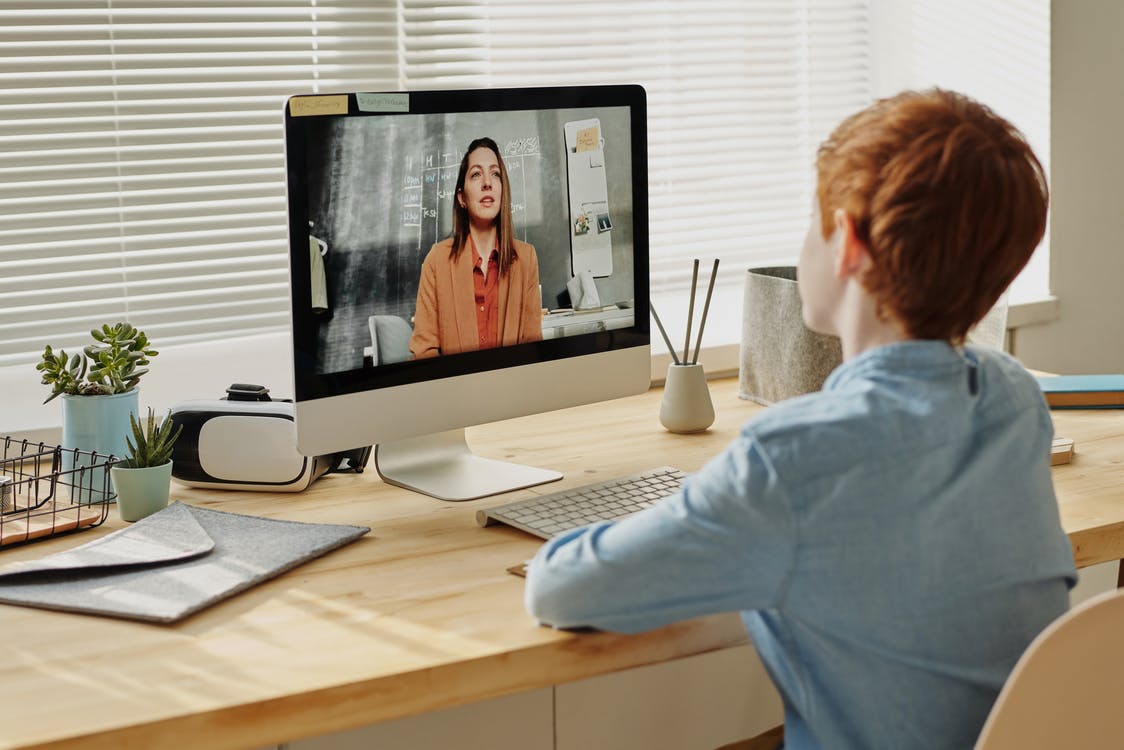
Today’s children, practically from birth, demonstrate an impressive familiarity with smartphones, computers, and tablets. This is a trend that is of concern to parents, pediatricians, and psychologists, who address the possible negative consequences that can arise with the overuse of these devices. How can we protect our children in today’s society?
To try to answer this question, we have identified 8 basic principles that enable healthy interaction between children and new technologies.
Table of Contents
Set the maximum time your child can use electronic devices

The amount of time a child can spend in front of screens should vary according to his age. Authority on the matter, the American Academy of Pediatrics, recommends the following:
- From birth to 18 months: no electronic devices, including television. The only exceptions would be video chat sessions with the dear grandma who lives far away and with other relatives.
- From 2 to 5 years: the maximum time in front of the devices must not exceed 1 hour. During this period, all gadgets can be included, from the smartphone to TV, tablet, and computer.
- For children over 6 years of age, a maximum time limit must be set for the use of digital devices (most experts agree with a maximum of 2 hours per day). In addition, it is important to ensure that electronic devices will not affect the child’s time that should be allocated to sleep, physical activities, and other tasks necessary for health and correct development.
You can easily set and implement these limits using digital apps for parental control. The app offers many useful features to limit kids’ digital exposure and to make it healthy. In the app, you can find features including screen time limits, app blocking, internet filtering, TimeBank, FunTime, and much more. To see how does the app work, give it a free try by downloading it from the app store on your phone:
Don’t forbid: offer other options

Removing the tablet, smartphone, or laptop and saying “go do something else” only makes it probably end in a tantrum. It is necessary to offer an alternative, some interesting joint activity: doing sports, spending a day in the countryside, drawing, reading, fishing… all depending on the child’s age and interests.
Set an example

Children imitate their parents’ behavior. When the mother likes to read, for example, the chances of the child also enjoying it are much greater when compared to the children of mothers who spend all their time on the cell phone.
Rethink your relationship with electronic devices. How much time have you been dedicating to them? How often you check your inbox, social media messages, or news. Do you give yourself free days of the Internet and digital devices?
Be a mediator and guide for communication between your child and the digital world

Show your child that the Internet and digital devices are not just for fun, but also as a source of information and knowledge. Encourage your child to explore and ask questions. On the other hand, you need to be prepared to respond and share experiences.
Pay attention to the quality of the content that the child consumes

Up to 9 years old, the child must always be accompanied by a guardian when accessing the web. The ideal is to prioritize educational programs and sites that help the little one to train their own attention and communication skills, stimulating cognitive interest and memory. Most sites (and even the most modern TVs) have control systems that allow limiting the list of sites available to the internet user/child viewer. If this option is not available, you can always put internet filters with the FamilyTime parental control app.
Establish areas free of Internet and gadgets

Define areas (bedroom, kitchen), times, and occasions (family lunch, dinner, trips to enjoy nature) in which the Internet and digital devices should be left out. Do not install a computer in the child’s room, and make it clear that the child cannot take the tablet or cell phone to the bedroom or dining table.
The pediatricians also recommend that parents should not allow their children to be on the screens of digital devices, at least 1 hour before going to bed.
Help the child to understand the principles of interaction on social networks, avoiding possible mistakes

Up to 12 years old, it is better to avoid social networks. For teenagers who have passed that age, access to these tools is even important, as they are at the stage of understanding themselves, understanding how they are seen by others, and seeking the approval of other young people.
At this stage of life, it is important for parents to be around, helping their children understand the basic principles of interaction on social networks. But it is better not to add children to your friend’s list. Most importantly, do not post comments on the timeline or photos of teenagers: remember that your child also has the right to privacy.
Clarify the risks

At the age, when teenagers can surf the web without any supervision, it is essential to warn them about the dangers that may be hidden on the Internet. Try to explain the following:
- How to act in the face of possible acts of intimidation on the networks;
- About privacy settings;
- Tell about the dangerous consequences that can arise when personal information is left open;
- Talk to your child about downloading certain content and plagiarism;
- Explain that everything we publish on the web is available to everyone and forever. Likewise, talk about the importance of reflecting critically and with caution about what is published on the Internet;
- Make it clear that your child can always reach out to you if a problem arises, without fear of giving you a hard time.
With these simple tips, you can easily avoid electronic addiction in your kids. Give them a try now!







